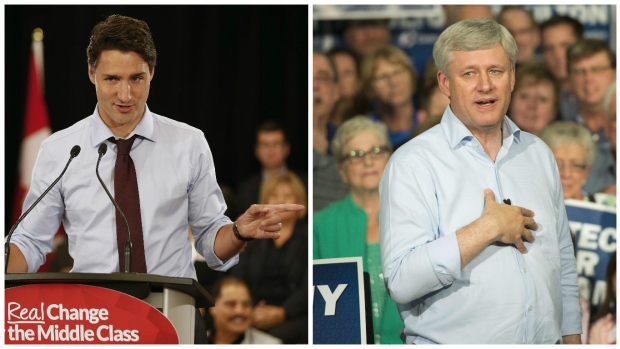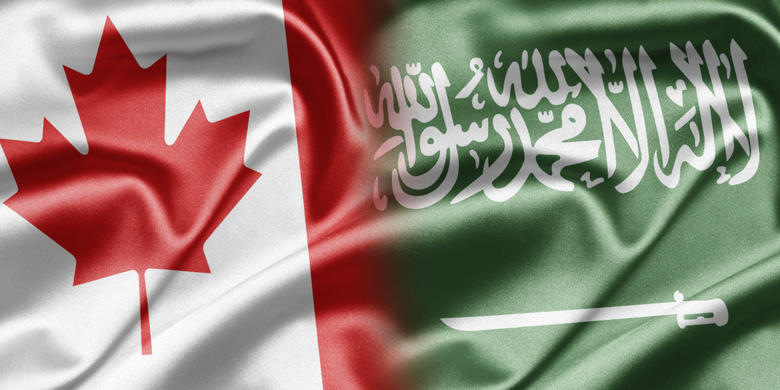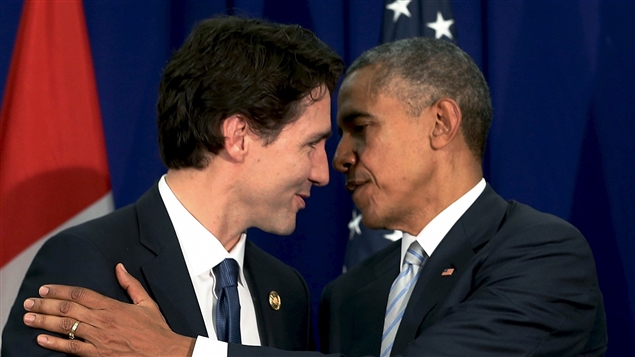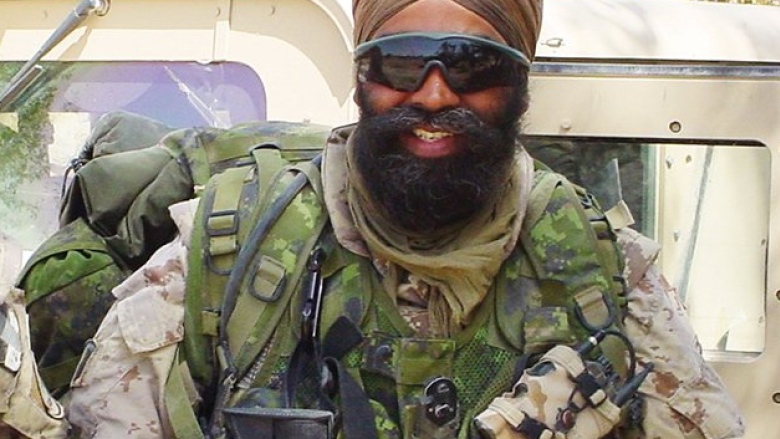 In our last chapter on the reign of the Trudeau dynasty, we saw Trudeau jr at what may prove to be his high point, a coveted state visit to Washington, feted by Americans besotted with royalty, a warmed over 1970s Trudeaumania. No substance, but lots of pretty selfies and photo ops of North America’s ‘bromance’.
In our last chapter on the reign of the Trudeau dynasty, we saw Trudeau jr at what may prove to be his high point, a coveted state visit to Washington, feted by Americans besotted with royalty, a warmed over 1970s Trudeaumania. No substance, but lots of pretty selfies and photo ops of North America’s ‘bromance’.
Syrian scam I
But already worrying signs are surfacing. Even as Obama addressed Canada’s parliament last month, another prominent America, ‘gay international’ activist Scott Long, told Torontonians about his nightmare three years in Egypt,

 What looked to be a new window of detente between the US and Iran, following the signing of the Joint Comprehensive plan of Action on Iran's nuclear program has quickly turned opaque. A US decree was issued to seize $2 billion in assets belonging to the Central Bank of Iran (CBI), holding Iran financially responsible for the 1983 bombing that killed 241 Marines at their barracks in the Lebanese capital, Beirut. The funds in question have been blocked since the civilian trial in the bombing began in 2011, but awaited the final legal touch to bless the blatant theft. This came when the US Supreme Court recently upheld the Congress bill, with the approval of President Barack Obama.
What looked to be a new window of detente between the US and Iran, following the signing of the Joint Comprehensive plan of Action on Iran's nuclear program has quickly turned opaque. A US decree was issued to seize $2 billion in assets belonging to the Central Bank of Iran (CBI), holding Iran financially responsible for the 1983 bombing that killed 241 Marines at their barracks in the Lebanese capital, Beirut. The funds in question have been blocked since the civilian trial in the bombing began in 2011, but awaited the final legal touch to bless the blatant theft. This came when the US Supreme Court recently upheld the Congress bill, with the approval of President Barack Obama. The sale of weaponized Light Armoured Vehicles (LAVs) to Saudi Arabia has raised a heated debate in Canada, pitting so-called realists against people who expect trade to be conducted according to a minimum set of moral values. Outgoing Conservative Prime Minister Stephen Harper's swan song was the $15-billion arms deal with Saudi Arabia, which Harper boasted would provide 3,000 jobs.
The sale of weaponized Light Armoured Vehicles (LAVs) to Saudi Arabia has raised a heated debate in Canada, pitting so-called realists against people who expect trade to be conducted according to a minimum set of moral values. Outgoing Conservative Prime Minister Stephen Harper's swan song was the $15-billion arms deal with Saudi Arabia, which Harper boasted would provide 3,000 jobs.
 Trudeau's Sikh contingent represent Vancouver, Mississauga, Waterloo and Edmonton — the respective hometowns of Defence Minister Harjit Sajjan, Industry Minister Navdeep Bains, Tourism Minister Bardish Chagger, and Infrastructure Minister Amarjeet Sohi. Trudeau's cabinet now contains more Sikh cabinet ministers than that of India. Though an official visit by Canada's new prime minister has not been set, both sides are eager to engage, and Trudeau will no doubt be accompanied by some of his Indian-born ministers, building a new platform for cooperation, based on the strong relations in the past.
Trudeau's Sikh contingent represent Vancouver, Mississauga, Waterloo and Edmonton — the respective hometowns of Defence Minister Harjit Sajjan, Industry Minister Navdeep Bains, Tourism Minister Bardish Chagger, and Infrastructure Minister Amarjeet Sohi. Trudeau's cabinet now contains more Sikh cabinet ministers than that of India. Though an official visit by Canada's new prime minister has not been set, both sides are eager to engage, and Trudeau will no doubt be accompanied by some of his Indian-born ministers, building a new platform for cooperation, based on the strong relations in the past. 



